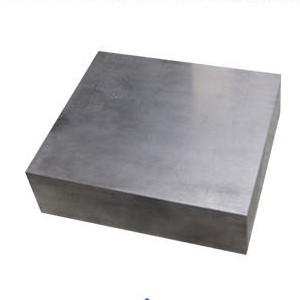Tool Steel Grades Definition System
According to the different chemical composition, tool steels can be divided into carbon tool steels, alloy tool steels and high speed steels (high alloy tool steels). Alloy Tool steel (here referred tool steel) is a type of carbon and alloy steel that is well-matched for tool manufacturing because of its hardness, resistance to abrasion and ability to withstand high pressures. American Iron and Steel Institute (AISI) and the Society of automotive engineer system(SAE) uses a basic alphabet-digit system to designate the carbon and alloy tool steels. Some tool steel series have additional resistance to corrosion due to added chemical properties such as vanadium, some series are restricted in order to minimize the potential of cracking while water quenching with the manganese content and other series offer various methods other than water to quench the material, such as oil. The main alloy tool steel series including:
S series: Shock resisting types
Shock resisting tool steel has been designed to resist shock at low or high temperatures. Its low carbon content is required to achieve the necessary toughness. This group of metals has high impact toughness, but a low abrasion resistance. Typical applications of S-Grade tool steel include Battering Tools, Boiler-Shop Tools, Chisel Cold Working, Swaging, Chipper Knives. Shock resisting steel grades including S1(T41901), S2(T41902), S4(T41904), S5(T41905), S6(T41906), S7(T41907).
 A series: Air hardening, medium alloy cold working tool steel
A series: Air hardening, medium alloy cold working tool steel
A series tool steel is a very versatile, all-purpose tool steel that is characterized by low distortion factor during heat treatment, due to the increased chromium content. This tool steel has good machinability and a balance of wear resistance and toughness. Typical applications of A-Grade tool steel include Arbors, Cams, Die Bending, Blanking, Coining, Embossing, Cold Forming, Lamination. Air hardening steel grades including A2(T30102), A3(T30103), A4(T30104), A5(T30105), A6(T30106), A7(T30107), A8(T30108), A9(T30109), A10(T30110), A11(T30111).
D series: High carbon, high chromium cold working tool steel
High carbon and chromium cold working tool(Air hardening steel ) was formulated to combine both the abrasion resistance and air-hardening characteristics. Common applications for these tool steels include forging dies, die-casting die blocks, and drawing dies. AISI D2(T30402) is the commonly used D series tool steel. Other types including D3(T30403), D4(T30404), D5(T30405),D6(T30406), D7(T30407).
O series: Oil Hardening cold working tool steel
O series tool steel has good abrasion resistance and toughness for a wide range of applications. Typical applications of O-Grade tool steel include Arbors, Bushing, Chasers (Thread Cutting), Die Blanking, Cold Forming, Cold Trimming, Knurling Tools. O series types including O1(T31501), O2(T31502), O6(T31506), O7(T31507) H series: Hot-Working tool steel
H series: Hot-Working tool steel
hot work tool steel is used to cut material at high temperatures. The H-Group has added strength and hardness for prolonged exposure to elevated temperatures. They are low in carbon and moderately high in additional alloys. AISI H1-H19 are 5% chromium based, H20-H39 are tungsten based and H40-59 are molybdenum based. H13(T20813) is the most widely used industrial hot working tool steel.
Besides the series mentioned above, there also cover several series below:
T series: Tungsten base high speed steel
M series: Molybdenum base high speed steel
W series: Water-hardening tool steel
P series: Plastic mold
L series: Low alloy special purpose tool steel
F series: Carbon tungsten special purpose tool steel
The choice of Tool Steel series depends on a number of factors likes sharp cutting required, impact loading, abrasion resistance and heat treating. Lkalloy is a leading AISI tool steels and high speed steel suppliers with a wide variety of tool steel grades, shapes and sizes. Contact us to inquire about tool steel.
References


